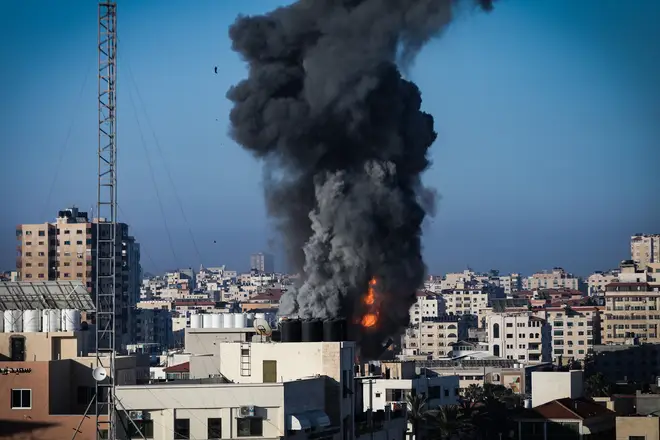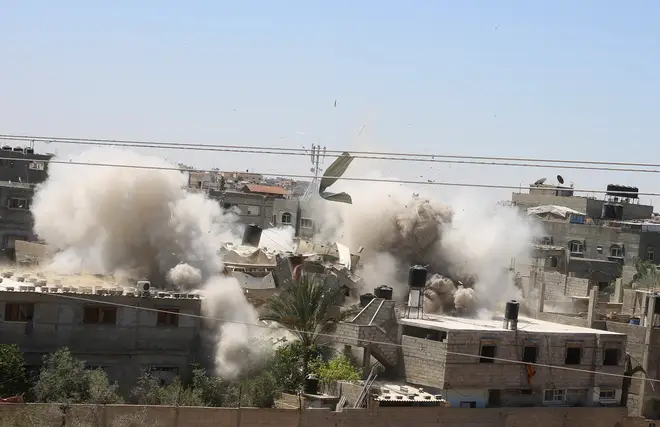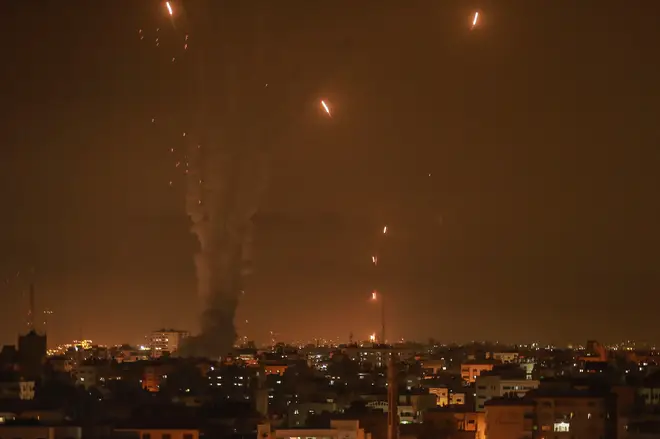
James O'Brien 10am - 1pm
20 May 2021, 23:46 | Updated: 21 May 2021, 00:08

Israel has agreed to a ceasefire in the Gaza Strip after 11 days of fighting with Hamas.
The decision to stop hostilities followed an Israeli Government security cabinet meeting, where it was decided to approe the Egyptian-mediated proposal, on Thursday afternoon.
The clashes are reported to have killed more than 200 Palestinians and twelve Israelis.
"The political leaders emphasised that the reality on the ground will be that which determines the future of the campaign," a statement released after the security cabinet meeting said.
It was reported the ceasefire was due to come into effect at midnight UK time, or 2am local.
A Hamas official said the declaration was a defeat for Israel's Prime Minister Benjamin Netanyahu and "a victory to the Palestinian people".
US President Joe Biden said Israelis and Palestinians "equally deserve to live safely and securely".

Iain Dale delivers news of Gaza ceasefire to Palestinian Ambassador
UK Foreign Secretary Dominic Raab tweeted: "Welcome news of a ceasefire in Israel and Gaza.
"All sides must work to make the ceasefire durable and end the unacceptable cycle of violence and loss of civilian life. UK continues to support efforts to bring about peace."
Read more: Biden urges Israel to wind down Gaza offensive as international pressure grows
Read more: The Palestinian Ambassador Husam Zomlot takes your calls
It comes after international pressure, including from Mr Biden, to bring an end to the fighting, which began on May 10 - though it had appeared Mr Netanyahu had rejected the calls on Wednesday.
"I am so relieved, thank goodness," Husam Zomlot, the Palestinian ambassador to the UK, told Iain Dale after he broke news of the ceasefire on LBC.
"We either do the same mistake again… or we actually take this as an opportunity to deal with the real issues. And the real issues are very simple - people have rights and these rights must be respected."
The violence started when Hamas militants launched rockets at Jerusalem following clashes between Palestinian protesters and Israeli Police at the sacred Al-Aqsa Mosque.

Police tactics and opposition to a potential eviction of dozens of Palestinian families by Jewish settlers led to growing anger.
In response to repeat rocket attacks, Israel launched hundreds of airstrikes into Gaza, saying it targeted Hamas' infrastructure.
Read more: Nine police officers hurt in clashes at Israel Embassy after Free Palestine protest

These have been criticised by observers who have feared for the potential for civilian casualties from military action in the densely populated strip, while others have said Israel has a right to defend itself.
Hamas and other militant groups have struck from residential areas, with most of their projectiles falling short of their targets or being intercepted.
The Gaza Health Ministry says at least 227 Palestinians, including 64 children and 38 women, have been killed, with 1,620 wounded. It does not break the numbers down between fighters and civilians.
In Israel, twelve people, including a five-year-old boy, a 16-year-old girl and a soldier, have been killed.
Updates to follow